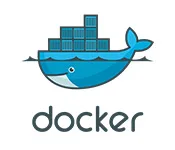In ASP.NET Core world, we have appsettings.{environment}.json, do we have similar thing in docker’s world?
My scenario is, I have a docker-compose.yml file that starts a couple of container services. But during the integration tests, I want to start an additional container service just for integration tests. I know I can’t use .env file to specify environment to be used in the docker-compose.yml file. But I don’t want the specified container service to be created and started in non-integration environment, which means I don’t want to start the container and overwrite the setting based on passing environemnt from .env file, I want docker-compose.yml completed ignores the container service for non-integration environments.
so is it something like docker-compose-{environment}.yml like appsettings.{environment}.json that can be merged?

 Question posted in
Question posted in 

2
Answers
docker-compose or Dockerfile does not have a mechanism to handle conditions.
there are two ways you can handle conditions in docker-related files.
first, use two different env files like
.envand.env.example, and point to.env.examplein a container that runs integration tests secondly you can use a bash file and override the environment inside the container if it runs in test mode. don’t forget when you point to an environment file inside docker-compose, docker sets all environments as os environments inside the container.Docker Compose Profiles are used to address this.
Using an example from the linked documentation, you assign your debug container to a specific profile:
compose.yamlWith a
compose.yamlstructured like this, you can either start the default services by omitting the target profile, or specific services by specifying the profile name.